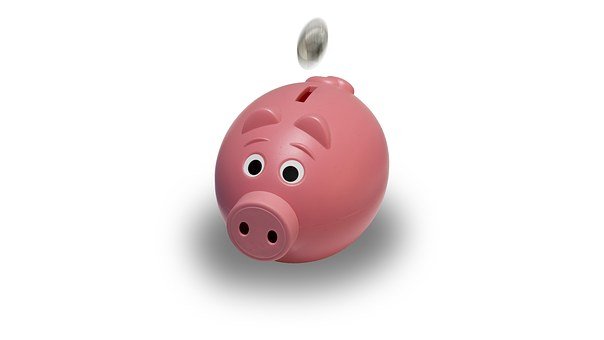Personal Finance Series #2: Top Money-Saving Tips

Hi there,
Welcome to my new series on Personal Finance. This is the second post in the series and I want to talk first about ways to save money. Why is saving money important, you say? Well, we need savings so that we can invest that money and let it grow. As the old saying goes, money begets money. So let us begin with the top 5 money-saving tips!
Contribute to your company sponsored 401(K) plan: this is a great tax-sheltered plan that often features a company match for a certain percentage of your contributions. So take advantage of this, and don't leave money on the table!
Be careful with credit cards: all too often, we spend way beyond our means to get the latest gadgets that are not necessary. And then we are left with a large credit card balance with hefty interest rates (usually over 20%). This is NOT the way to manage your finances. Get rid of most cards, and keep one or two that you like best in case of emergencies. If you lack the discipline in using credit cards, literally freeze them inside a container of water. Then when you get the impulse to purchase, let it all melt and thaw. While you wait for your credit card to be freed from its icy prison, you will have a chance to think about the necessity of that purchase (and you might change your mind!). If you use them, make sure to pay off the entire balance each month. If you don't, it doesn't matter what types of perks the cards offer; you will give the credit card company more than what they give you.
Use the public library: library is a great place to borrow books, videos, and magazines for free. Many also provide electronic books that you can view with smartphones and tablets. This can really help to cut down on entertainment expenses such as movie theatres or ordering the latest deluxe edition of Harry Potter!
Do not use ATMs of other banks: if you have a bank account with Chase, but you frequently use a Citibank ATM because it happens to be on the way to work, don't! Often, the fee is over $2 for using an out-of-network ATM and that can add up over time.
Start with a short-term and modest savings plan. Personal finance is a marathon, not a sprint. Start planning to save in small sums of money over a short-to-medium term; that way, it does not overwhelm you from the get-go. As you get the hang of it, you can gradually expand your goals.
I hope you found this article helpful, and I will be sharing more information and advice on personal finance in the next series.
If you have any questions in the meantime, feel free to reply with your questions and I will try to help in any way that I can. Thanks for reading!
If you liked this article, please check out my previous post below:
Personal Finance Series #1: Money Management 101
If you are also interested in learning more about taxes, please check out my tax series below:
Tax Series #9: Standard Deduction vs. Itemized Deduction
Tax Series #8: Child Support vs. Alimony, and Why it Matters!
Tax Series #7: Top Tax Tips to Save Money
Tax Series #6: Tax Benefits for Students
Tax Series #5: Do you need to file an income tax return every year?
About the Author : I am a cryptocurrency enthusiast and a U.S. Certified Public Accountant with over 15 years of experience in accounting, taxation, and finance.
If you like this series, please follow me @qwesttexas. I am here to help the Steemit community with personal finance and tax questions, and break it down into simple steps so anyone can benefit from it. Let's go Steem!